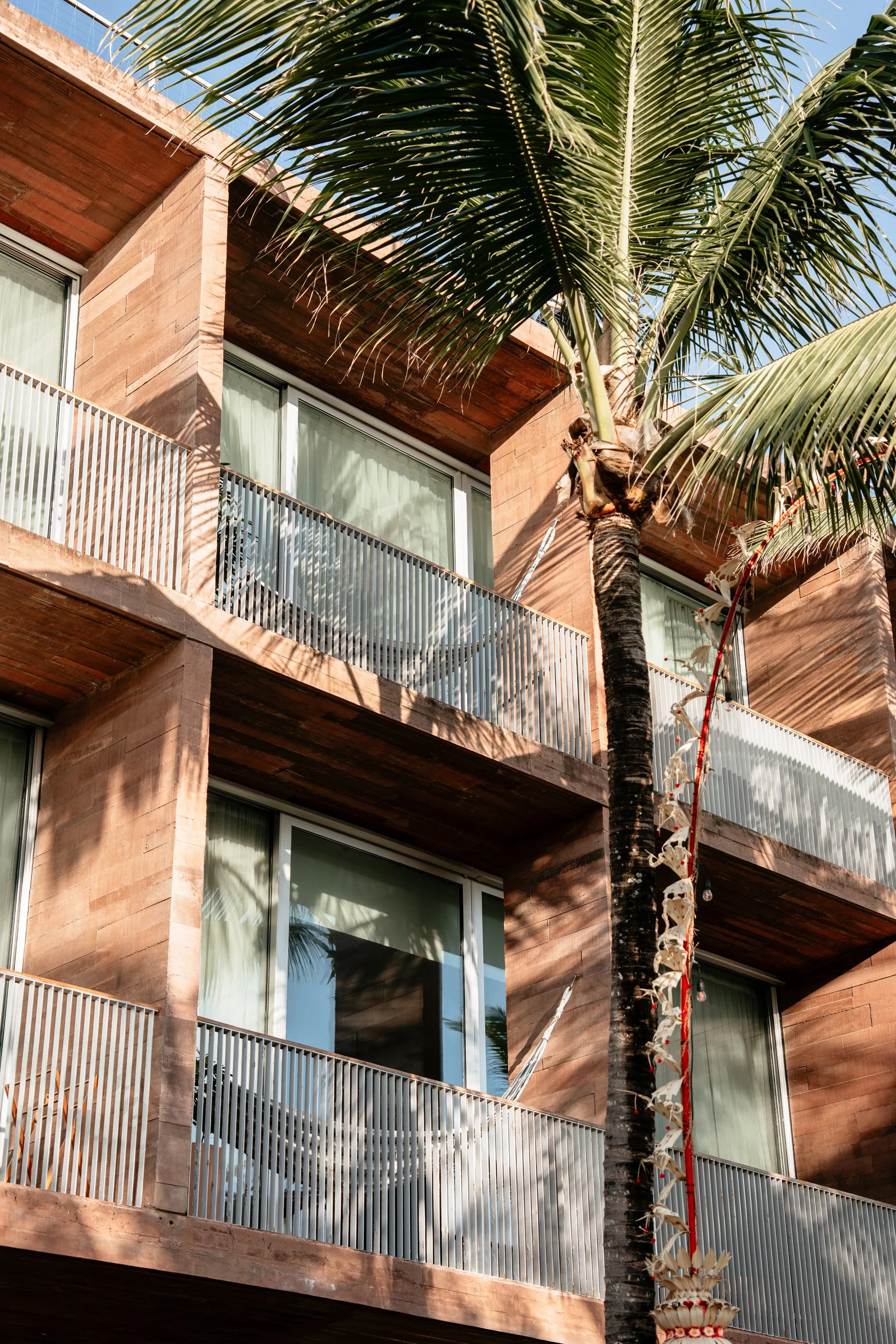Potato Head, Seminyak: Review
Desa Potato Head is pushing the boundaries of luxury hospitality as we know it, and it’s for the better.
An appealing blend of glamour, comfort, creativity, and sustainability, this resort-come-cultural hub embodies its mantra wholeheartedly, a gentle nod to Bali's philosophy of karma: Good Times, Do Good.
A pocket of calm hidden away from the liveliness of Seminyak, a popular pin on Bali’s tourist route, it had long been on my travel bucket list before visiting in April.
Behind Desa Potato Head is Jakarta-born hotelier and art collector Ronald Akili, who dipped his toes in the water of regenerative hospitality with this forward-thinking creative village which opened its doors in 2020. Its eco-minded design principles (which go beyond reusable straws and LED lighting but by no means affect the five star experience), attract conscious travellers who go in search of relaxation, rejuvenation and a good time.
Location
Situated on the banks of Batu Belig beach, a beauty spot where the sun rises and falls along a seemingly infinite coastline, a long bamboo-lined driveway connects this creative village with the bustle of one of Seminyak’s main streets, where you can explore all that the town has to offer without venturing too far. Located less than 60 minutes from Bali's international airport, the hotel is an ideal base for exploring the rest of the island.
First Impressions
As previously mentioned, Potato Head offers a departure from the typical hotel experience. Instead of being greeted by plush carpeted foyers and suited concierges, the hotel ‘lobby’ is a Brutalist-style open-air public plaza, clad in concrete and greenery. Check-in is all done seated at individual booths, and the staff handle the formalities whilst you enjoy the complimentary welcome shot of Jamu - Indonesian health elixir - and a healthy snack. Guests are then ushered into the adjacent concept store, and can choose a reusable tote bag and water bottle, a gesture which drives home Potato Head’s eco-minded message.
Facilities
Unlike typical private resorts in tropical locations, Potato Head extends a warm welcome to non-guests to come and utilise the hotel and its facilities. But don’t let this put you off. This creative village is spacious and well-planned, ensuring that hotel guests who seek privacy can have it, and locals and visitors who don’t wish to stay, can still enjoy the facilities without intruding.
Potato Head’s communal working space or library (complete with coffee bar), record playing station, quirky concept stores, off-beat art, and experimental restaurant offering are just a few touches that set Potato Head apart from the crowd.
Rooms
The resort's thoughtful design continues into the bedrooms. The studios, where we stayed, are compact in design but cosy and spacious, and tastefully yet simply accessorised with a wall tapestry, sofa and wooden alcove which comprises a desk-come-cocktail bar. The wooden-panelled bathroom and herbal-scented amenities bring a sauna-like element, carrying on the resort’s wellness theme to the finest detail.
Touches in the room such as the cocktail bar, quirky newspaper-style directory, and commonly often overlooked amenities such as refillable tubs of after-sun and SPF (that I often find myself dashing to the nearest pharmacy mid-trip for), are simple but impactful gestures, all part of the carefully curated Potato Head experience.
Dining
There are six dining options within the resort, so becoming tired of the food is unlikely. I can only speak for the delicious pool-side menu, the fresh and nourishing breakfast served al fresco, and Kaum, dishing up national dishes with a contemporary spin. If these are anything to go by, then I’d trust that the food throughout the resort is guaranteed to impress.
Whilst we didn’t have the opportunity to try all of them, the glowing reviews online are testament to the high standard of F&B throughout. There’s Tanaman, the experimental plant-based eatery serving seasonal tasting menus; sustainably sourced seafood at Ijen, natural food and wine at Dome, a Pizza Garden (self explanatory), and the Sunset Park rooftop bar which mixes up zero-waste cocktails using alternative ingredients and house-made spirits.
Sustainability
Whilst eco-responsibility is the etiquette for many hotels now (and merely PR ploy for some), here, sustainability is ingrained into the resort’s very fabric. Bali has faced a persistent waste problem for years, but Potato Head is addressing it directly by transforming waste into art, architecture, and hotel amenities.
Desa is on a mission to fulfil its goal of being zero-waste and has put in place many practices to achieve this. Wherever possible, the resort has subtly and tastefully adopted the ‘3R’ policy. Everyday items like desk chairs and coasters in the rooms are made from Potato Head's signature terrazzo-style recycled plastic. The facade of Potato Head's Beach Club is built from almost 7,000 repurposed window shutters. Within Potato Head's expansive open-air common areas, all eyes are on the environmentally conscious art and sculptures dotted throughout the resort, including Liina Klauss's playful ‘5,000 Lost Soles’ which true to its name, consist of 5,000 pairs of flip flops. The stainless steel water bottle every guest receives upon check-in (yes that's right, a gift!) has a top fashioned from recycled plastic, in Potato Head’s signature terrazzo pattern.
Comfortable, serene, and visually sublime, with wellness and sustainability at the centre of every detail, Potato Head has an addictive charm that results in repeat custom, keeping those Bali enthusiasts coming back for more. I will be back - and soon.
Find out more or book your stay at https://seminyak.potatohead.co.


















